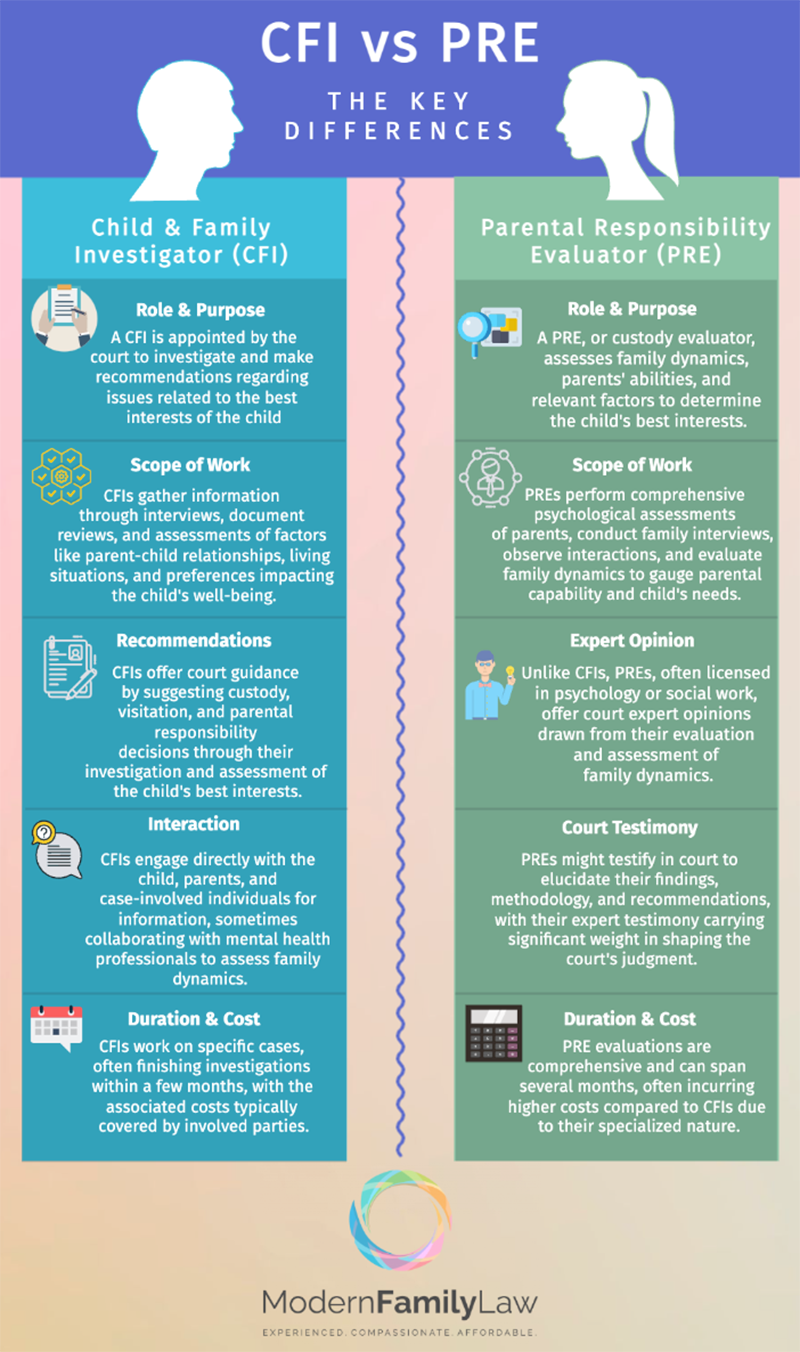The CFI
A Child and Family Investigator is perhaps the most common type of child custody expert. Widely used in both custody and divorce matters, a CFI is appointed to investigate and make recommendations as to the children’s best interests. A CFI will make recommendations for both parenting time and decision-making. A typical investigation involves:
- Collecting data questionnaires from the parties,
- Performing office and/or home visits,
- Speaking to the children, and
- Speaking to third parties, such as friends or relatives.
However, a CFI is free to perform the investigation as he or she sees fit. A CFI may use all or only some of the investigative steps listed above. An important limitation of a CFI is that they cannot conduct psychological testing. A CFI investigation typically takes about 60-90 days before a CFI Report is issued. That report will detail their investigation and ultimately their recommendations as to parenting time and decision-making. CFIs are widely used in initial divorce and custody matters, relocation cases, and modification cases. The cost of a CFI’s investigation generally cannot exceed $2,750 (as of 2019).
CFI Qualifications
A CFI plays a serious role in a divorce or custody case once called upon for assistance. Their job is not to be taken lightly. For this reason, Colorado CFI’s are required to complete an affidavit for eligibility, pass a background check, and complete the mandatory training. Qualified individuals are listed on the Colorado Judicial Branch page along with their respective counties.
California refers to CFIs as Child Custody Investigators, which provide the same services. The state court’s judicial branch has additional information listed on their court website with a list of required training and experience. In California, court-connected child custody investigators require:
- 40 hours of training before appointment
- 16 hours of advanced domestic violence training within a 12-month period
- 4 hours of domestic violence update training each year
- 8 hours of continuing education each year
In Texas, A Child Custody Evaluator is the person who conducts an evaluation ordered by a court whereby the court can obtain information, opinions, recommendations, and answers to specific questions regarding conservatorship of a child including the conditions of possession of or access to a child or any other issue affecting the best interest of the child. Some of the things included in a child custody evaluation are:
1. Personal interview of each party seeking conservatorship, possession, or access to the child;
2. Developmentally appropriate interviews of the child or children during a period of possession of each party but outside the presence of that party;
3. Observations of each child regardless of age in the presence of each party to the suit; 4. Observations and interviews of each child who is not a subject to the suit but lives on a full-time basis in a residence that is the subject of the evaluation;
5. Collateral Sources – obtaining information from relevant school records, physical and mental health records of each party and each child, relevant records of the Department of Protective Family Services, the criminal history of the child and each person who lives with the child, and the parties; and
6. An assessment of the relationship between each child and party seeking possession of or access to the child.






